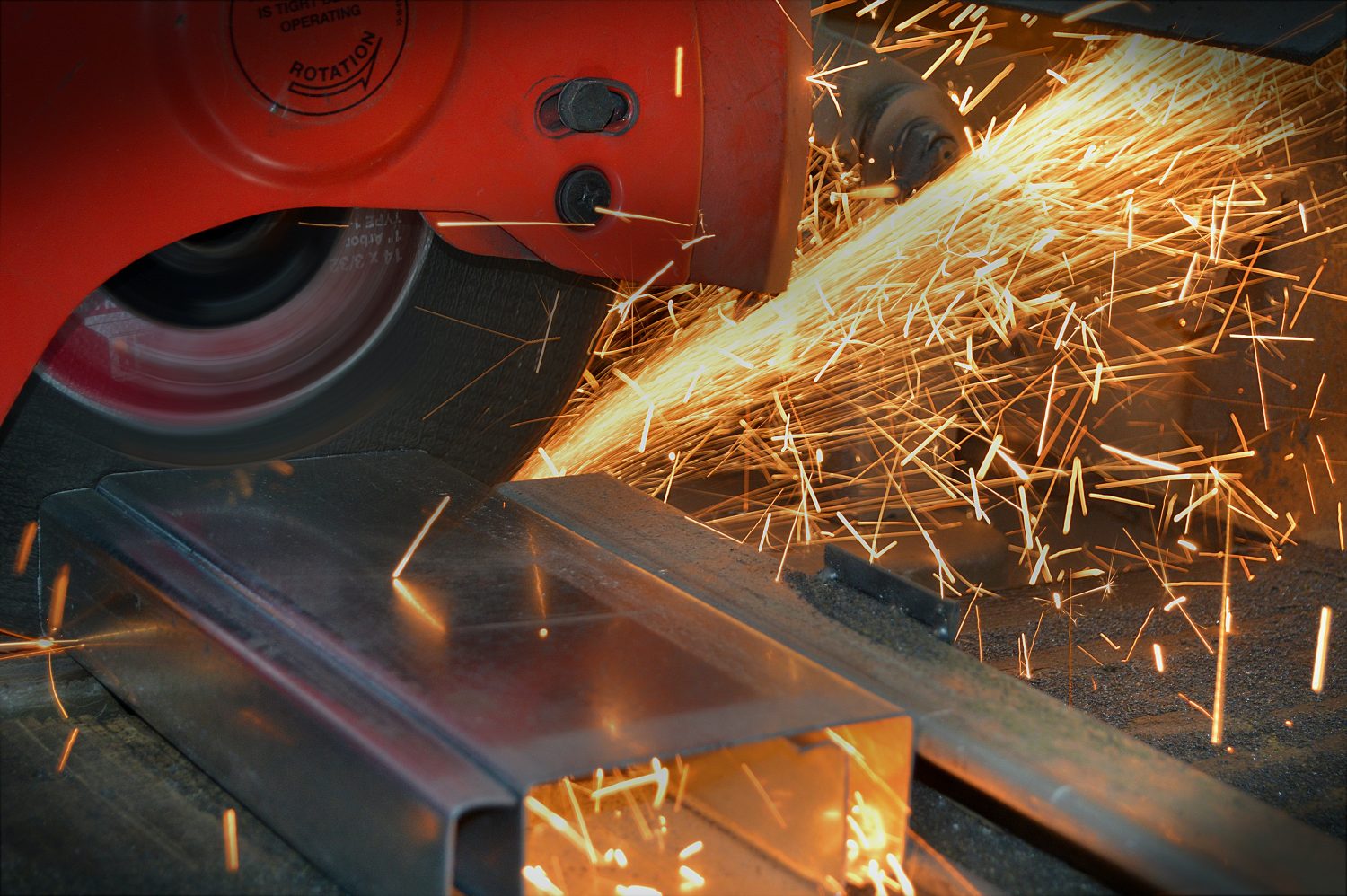Manufacturing vs Fabrication: What’s the difference?
14th Oct

Manufacturing and fabrication are industrial terms relating to the process of production or construction. People often compare manufacturing vs fabrication like they need to choose between them, but in a lot of cases they work together. In this guide we’ll be looking at the meaning of both manufacturing and fabrication within industrial processes.
What is involved in fabrication?
Fabrication is a method of constructing products by mixing typically standardised parts using one or more individual procedures. For example, steel fabrication is the creation of metal structures using multiple different processes like cutting, bending, and assembling.
Metal fabrication will mostly form a complete assembly made from smaller sub-assemblies to use with readily available standard sections. This is done with CAD (computer-aided designs) that are programmed with CNC (computer numerical control) technology which directly communicates with the machinery is on the factory floor.
By using these technologies, production quality standards are increased, and better-quality assemblies are made. This makes for a more accurate and quicker steel erection time on site, which is essential in high volume production, lowering the cost for customers though maximised material utilisation and faster assembly times.
Our team at FEM have extensive experience of fabrication in Sheffield which ensures the highest quality within all our projects, giving our customers products that are durable and have longevity.
What is manufacturing?
A manufacturing process involves converting raw materials into a finished product. Basically, it’s making something from start to finish. The manufacturing sector includes large scale production using machines, tools, and chemical/biological processing.
It is the stages that raw materials need to undergo before being deemed a final product. There are a range of different industries that fall into this category such as:
- Apparel
- Chemicals
- Electronics and electrical equipment
- Fabricated metal
- Food and kindred
- Leather
- Lumber and wood
- Petroleum refining
- Printing and publishing
Comparing manufacturing and fabrication
Manufacturing is about making a complete product to be sold to consumers using either prefabricated parts or raw materials. Normally, the production process uses machinery, assembly lines, and skilled labour. There are five general categories when it comes to manufacturing:
- Repetitive- the same product is created all the time
- Job shop- an open system without assembly lines, this strategy is useful for specialised or custom-made products
- Discrete- this might follow the assembly or production line method, but the processes for making them vary significantly
- Continuous- the nature of the product being made is regularly in demand and needs continuous movement
- Batch- products are manufactured in specific groups within a restricted timeframe. Contract manufacturing can be part of this method because typically the contractor is producing quantities of unique products for various companies
Fabrication involves building a product to be used by manufacturers, not consumers. Fabricators work to process raw materials or refine parts of them, so they are suitable for assembly. The options are practically limitless, but some of the most common methods of fabrication include:
- Cutting/punching
- Welding
- Folding
- Machining
- Shearing
- Stamping
The main difference between manufacturing and fabrication is how much of the process a job involves. Fabrication entails assembling standard or specialised parts to create parts of a product to be used in the manufacture of the completed piece.
Manufacturing on the other hand, is a start to finish method, from creating parts to the final assembly to form the finished product, often using areas of fabrication within the manufacturing journey.
If you’re looking for metal fabrication Sheffield, check out our range of fabrication services and if you have any questions or want to discuss a specific project, contact our family run team at FEM today.